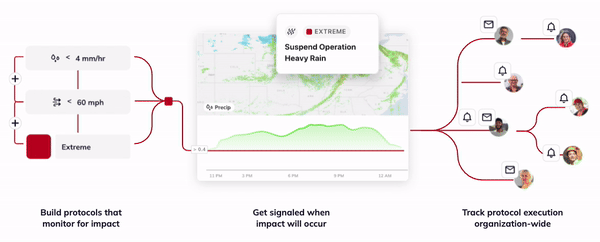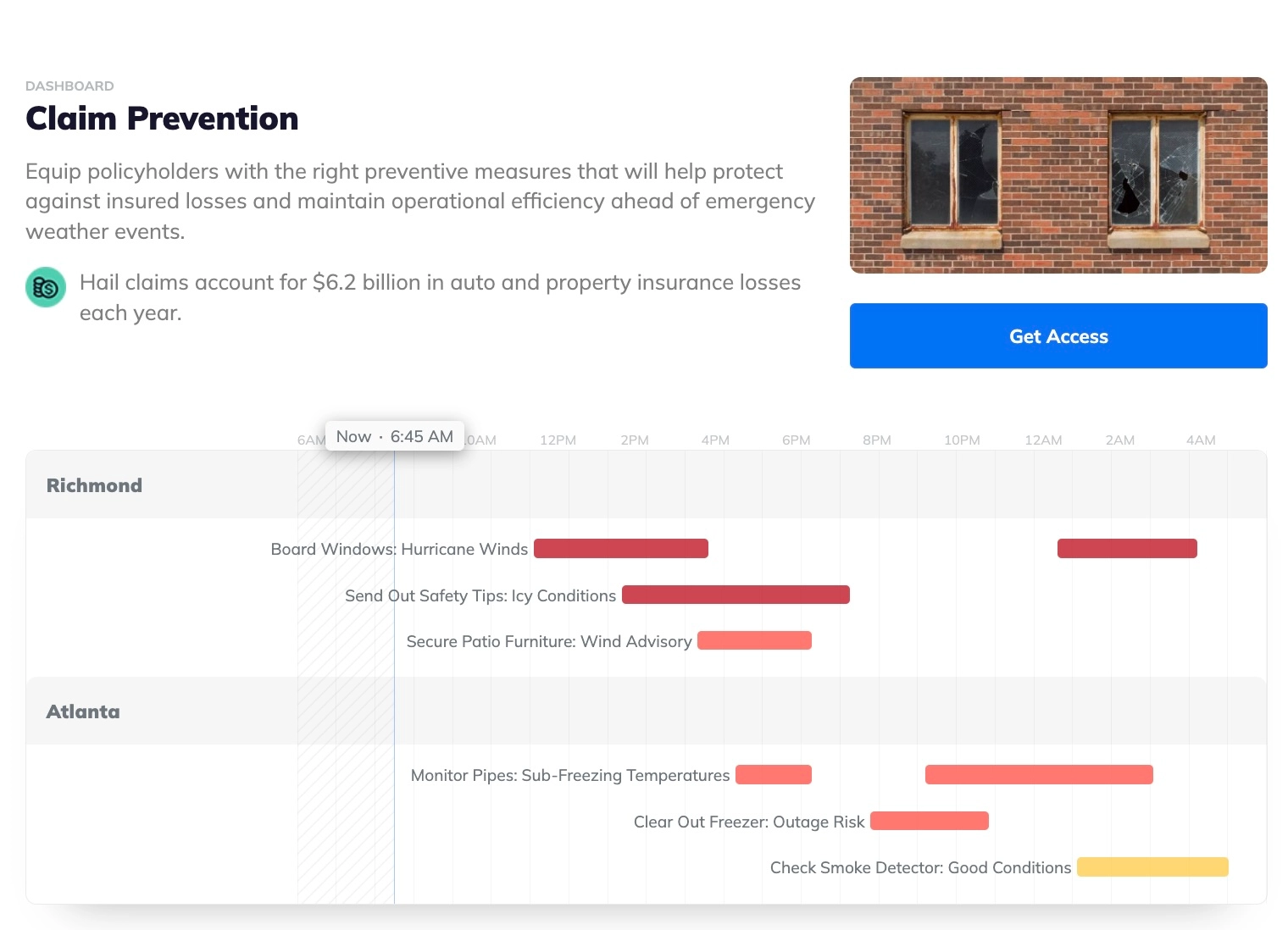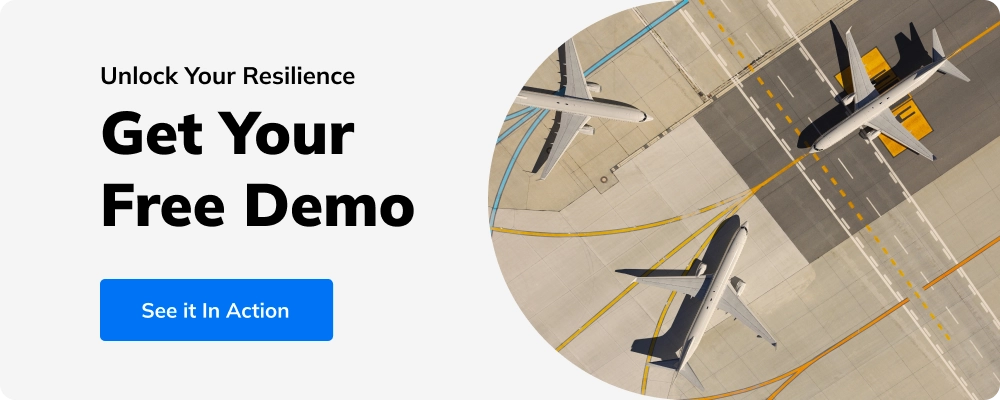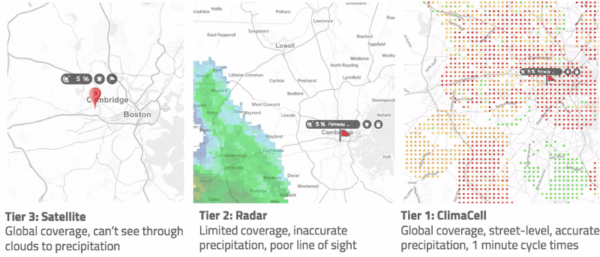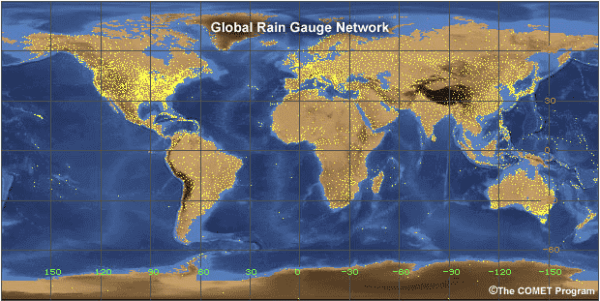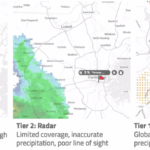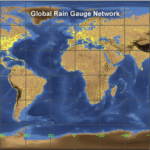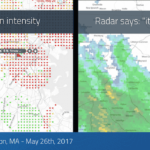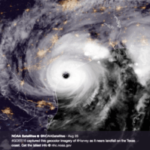TL;DR:
- Weather-related disruptions are a significant factor in travel insurance claims, emphasizing the need for better risk management.
- Utilizing precise weather data helps insurance companies assess risks accurately, set appropriate policy prices, and manage claims efficiently.
- Key weather data like temperature, precipitation, and storm forecasts are crucial for understanding travel risks.
- Tomorrow.io offers advanced weather data tools to enhance travel insurance policies, improve operational efficiency, and boost customer satisfaction.
- Integrating weather data into travel insurance can result in significant financial savings and improved customer loyalty.
Understanding Travel Insurance
Definition: Travel insurance provides coverage for unexpected events that can disrupt travel plans, including trip cancellations, medical emergencies, lost luggage, and weather-related incidents. It ensures travelers can recover costs and receive assistance when their trips are affected by unforeseen circumstances.
Common Challenges: Insurance companies face challenges such as predicting potential travel disruptions, setting appropriate premiums, and efficiently managing claims. Traditional methods often fall short due to the variability and unpredictability of factors influencing travel, particularly weather conditions.
The Role of Weather Data in Travel Insurance
Advanced Weather Prediction Technologies
Weather prediction technologies have advanced significantly, providing more accurate and granular data. These technologies use satellite imagery, radar systems, and sophisticated algorithms to forecast weather conditions with high precision. This data allows insurance companies to make informed decisions about risk assessment and policy pricing.
Types of Weather Data:
- Temperature: Variations can affect travel plans, especially in extreme conditions.
- Precipitation: Rainfall and snowfall data help assess risks of travel delays and cancellations.
- Storm Forecasts: Important for predicting disruptions caused by severe weather.
- Visibility Levels: Fog and low visibility conditions contribute to travel risks.
By leveraging these data points, insurance companies can better understand the risks affecting travel and tailor their policies accordingly.
How Weather Data is Utilized in Travel Insurance
Aspect | Description | Example
Risk Assessment: Weather data is crucial for assessing the risk of adverse weather events affecting travel. By analyzing historical weather patterns and forecasting future conditions, insurance companies can determine the likelihood of weather-related disruptions. For instance, an insurer might use historical storm data to assess the risk for travelers in a particular region, adjusting coverage and premiums accordingly.
Policy Pricing: Accurate weather forecasts and historical data help insurance companies determine appropriate policy pricing. Understanding the risk factors associated with different weather conditions allows insurers to set premiums that reflect the true cost of coverage. For example, an insurer could use rainfall data to price policies for travelers during monsoon season, ensuring premiums cover potential disruptions.
Claims Management: Weather data streamlines the claims management process by providing real-time insights into weather events. This helps insurers quickly validate claims and determine the extent of disruptions. An example could be the use of real-time weather tracking to verify claims of trip cancellations due to a storm, enabling faster and more accurate claim settlements.
Impact Areas for Insurance Companies
Financial Savings:
Accurate weather data enables better risk assessments, allowing companies to set premiums that cover potential disruptions without overcharging customers. For instance, using detailed storm risk data, an insurance company can avoid unexpected high payouts during storm seasons, optimizing financial resources and enhancing profitability.
Operational Efficiency:
Integrating weather data into the underwriting process streamlines operations, reducing the time and effort required for risk assessment and policy adjustments. Automated data analysis and risk evaluation enable quicker decision-making and policy issuance. An example would be an insurer using automated weather data analysis to swiftly adjust travel policies in response to changing weather forecasts, ensuring coverage remains relevant without extensive manual intervention.
Customer Satisfaction:
Providing accurate and timely coverage based on weather predictions enhances customer satisfaction. Travelers benefit from policies tailored to their specific weather-related risks, ensuring appropriate compensation when adverse weather events occur. For instance, travelers with insurance policies that include real-time weather warnings can take preventive measures to avoid disruptions, reducing losses and increasing trust in their insurer. This proactive approach leads to higher customer loyalty and positive word-of-mouth referrals.
Tomorrow.io’s Tools, Solutions, and Services
Advanced Weather Prediction Technology
Tomorrow.io offers a comprehensive suite of tools designed to enhance the effectiveness of travel insurance policies through precise weather data. Their advanced technology leverages satellite imagery, radar systems, and sophisticated algorithms to provide accurate and granular weather forecasts. This enables insurance companies to make informed decisions regarding risk assessment, policy pricing, and claims management.
Robust Weather Data through API
Tomorrow.io’s weather API provides historical archives and real-time weather insights, helping underwriters, claims adjusters, and actuaries consider weather when determining policies and claims. For example, insurers can cross-reference a traveler’s claim of trip cancellation due to a storm with real-time storm alerts and historical weather data, ensuring accurate and justified payouts.
Early Warnings and Preventative Measures
Tomorrow.io facilitates informed decision-making by offering precise early warnings and preventative measures for extreme weather events. Insurance companies can provide policyholders with timely alerts about impending weather conditions, allowing them to take preventive actions. This not only reduces potential disruptions but also enhances customer satisfaction.
Predictive Coverage Needs
Tomorrow.io’s predictive coverage needs feature helps insurers engage with policyholders to offer tailored policy recommendations. By analyzing weather data, insurers can identify regions at higher risk for specific weather events and offer appropriate coverage options. This targeted approach ensures that travelers receive the most relevant and effective insurance products.
Pre-built Insurance Dashboards
Tomorrow.io’s pre-built insurance dashboards provide a quick start for companies looking to integrate weather data into their operations. These templates help insurers rapidly deploy solutions for storm risk management, trip cancellation prevention, and policyholder engagement, boosting operational efficiency and customer satisfaction.
Conclusion
Integrating advanced weather data into travel insurance policies offers significant benefits for insurance companies. By leveraging Tomorrow.io’s cutting-edge tools and solutions, insurers can achieve accurate risk assessment, precise policy pricing, and efficient claims management. This approach leads to substantial financial savings, operational efficiency, and enhanced customer satisfaction. Utilizing weather prediction technologies is essential in an industry where weather unpredictability poses significant challenges. Insurance companies that embrace these advancements will be better equipped to protect travelers, ensure profitability, and stay ahead in a competitive market.


